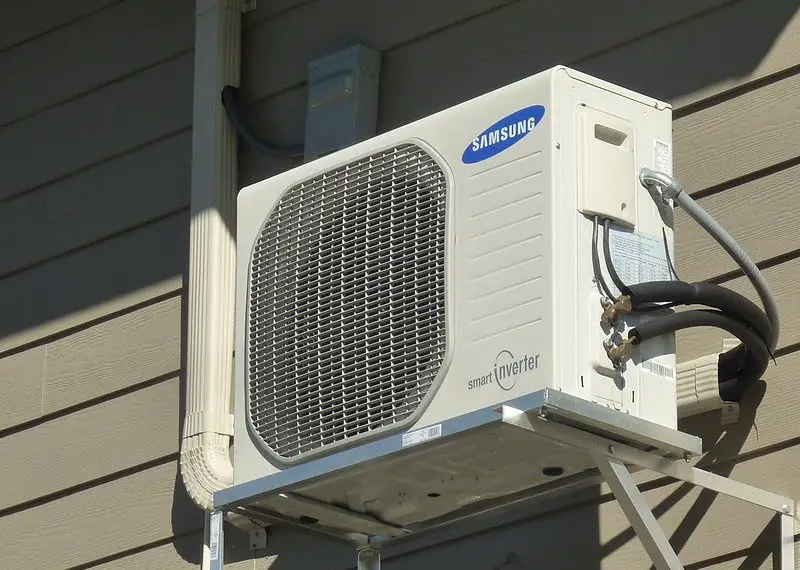AC compressor leaking? Now, that’s a real headache. If you’ve noticed your house becoming hotter than usual or your electricity bill climbing up the ladder, your air conditioner might be singing the leaking blues. This article is a comprehensive guide to help you understand, identify, and tackle an AC compressor leak.

Table of Contents
Signs and Symptoms: AC Compressor Leaking
So, how can you tell if you’ve got an AC compressor leak on your hands? Here are some telltale signs.
Reduced Cooling Capacity
The most evident sign is when your AC is blowing more hot air than a summer in Sahara. If there’s a leak, your AC won’t be able to cool your home effectively. The refrigerant is what does the actual cooling, so when it leaks out, it’s like a car without fuel. Pretty useless, right?
Strange Noises from the AC Unit
When an AC compressor is leaking, it might sound like a haunted house during Halloween. Unusual noises can occur due to a lack of lubrication, causing internal components to scrape and bang against each other. So, if you hear any eerie noises, you might want to investigate!
Presence of Oil or Refrigerant around the AC Compressor
Got a pool party happening around your AC compressor? The party crasher could be a leaky compressor. A pool of refrigerant or oil around the compressor unit is a glaring sign of a leak. Don’t ignore it; your AC’s calling out for help!
Causes of AC Compressor Leaks
Alright, let’s move on to why your AC compressor might be leaking.
Wear and Tear
Age, like for humans, can take its toll on AC compressors too. With time, parts can wear down, leading to leaks. Think of it like an old car; the more miles it’s covered, the more maintenance it’ll need, right?
Poor Maintenance
Do you remember the last time you had your AC serviced? Yeah, me neither. The truth is, just like any other machine, your AC requires regular maintenance. Lack of maintenance can result in dirty coils, blocked filters, and yes, you guessed it, compressor leaks.
Damaged Seals
Another common cause of leaks is damaged or deteriorated seals. It’s like having a hole in a water balloon. No matter how much water you fill, it’ll keep leaking until you seal the hole. The same goes for your compressor. If the seals are damaged, the refrigerant will find its way out.
Check out these other related articles…
Parts of an AC Compressor: A Detailed Guide
AC Compressor Noise: Your Easy Guide
AC Compressor Clutch Not Engaging: Why and How to Fix It
AC Compressor Kit: Your Ultimate Guide
AC Compressor vs Condenser: Breaking Down the Cool Details
How to Confirm an AC Compressor is Leaking
So, you’ve got a sneaking suspicion that your compressor might be leaking? Here’s how you can confirm.
Visual Inspection
One of the simplest ways to confirm a leak is a good old visual inspection. Look for pooling oil or refrigerant around the compressor. Don’t forget to check for frost or ice on the compressor lines. It’s like your AC playing detective, leaving clues for you to find!
Use of Leak Detection Tools
If you’re a fan of gadgets, this one’s for you. There are various tools available that can help you spot a leak in your AC compressor. Leak detection dyes and electronic leak detectors can help you pinpoint the exact location of the leak. Pretty neat, huh?
Repairing an AC Compressor Leak
Alright, now that we’ve established the presence of a leak, let’s look at how to repair it.
DIY Repair Options
If you’re a handy Andy, you might be able to fix minor leaks at home. There are refrigerant leak sealants available in the market that can help. But remember, it’s like a band-aid solution. Good for a quick fix, but it might not solve the underlying issue.
Professional Repair and Replacement
When things get serious, it’s time to call in the pros. If your AC compressor is leaking significantly, it’s better to have a professional assess the situation. Sometimes, the compressor might need to be replaced entirely. But hey, that’s better than melting in the heat, isn’t it?
Preventing Future AC Compressor Leaks
To ensure your AC compressor doesn’t start a leaking spree again, regular maintenance is key. Clean the filters, check the seals, and have a professional service your AC every once in a while. Prevention, after all, is better than cure, don’t you agree?